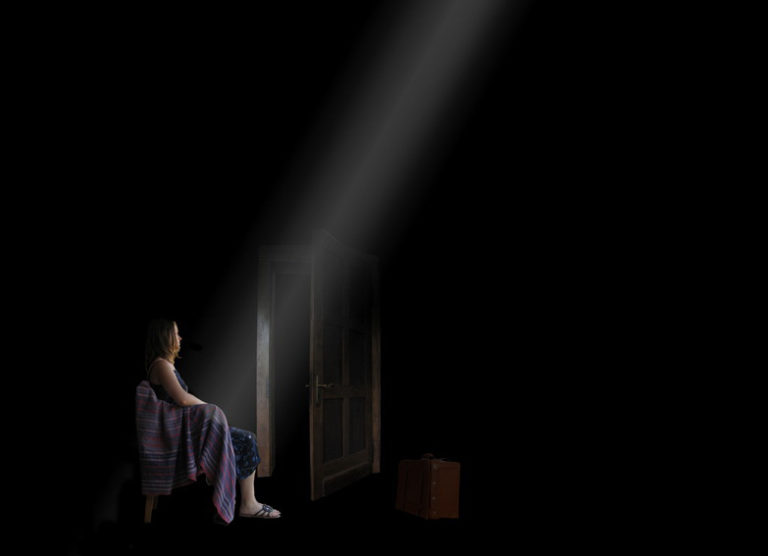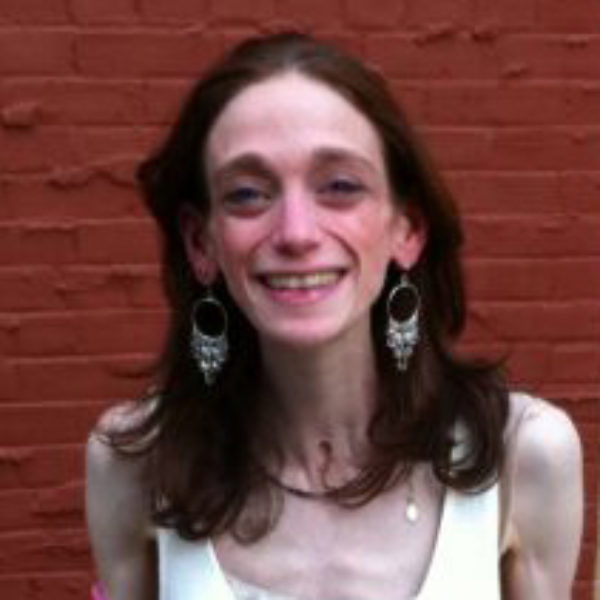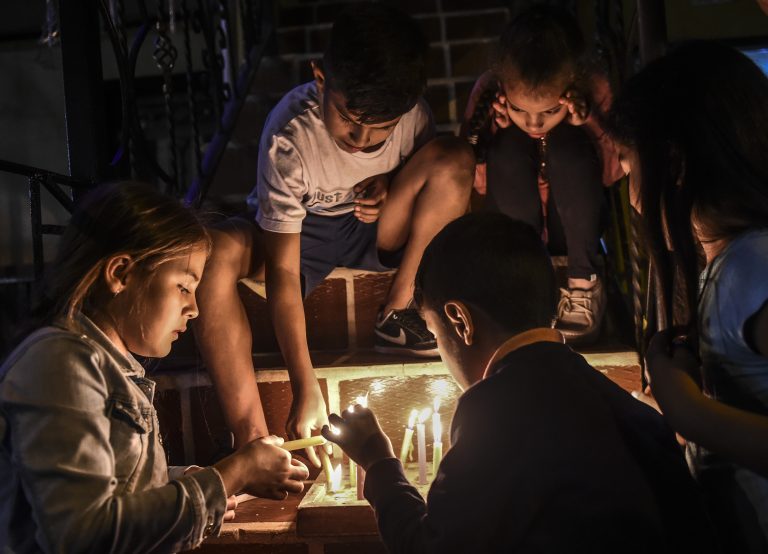
Image by Hartwig HKD.
Losing Faith and Finding it Again in the ICU
When I was in third grade, every night I would press my fingertips together before I drifted off to sleep — it was my little language I had with God. Somehow, I told myself, if I pressed my fingers together as tightly as I could, and felt that warmth in between each tip, whatever I said, God could hear me. And so every night, I would do this ritual, like a grasshopper rubbing its legs together, and chant the same words:
Dear God, thank you for a beautiful day today. Please let me live a long, happy and healthy life. Please visit me in my dreams. Amen.
And then I’d slowly feel my eyelids fall, and I would be transported into the world of dreams. I remember dreaming about my favorite pop-stars coming over to play, being chased by vampires, other embodiments of childhood fears and fantasies, and even heaven — but I never did see God.
When I awoke in the morning, I would run through my dream from start to finish, trying to remember every last detail and see if God was there, like a Where’s Waldo? storybook. I never did spot God. I often imagined him in an oak tree, right in front of my window, and told myself he never came to my dreams because he was too busy watching over me as I slept, keeping our home safe.
I rubbed my fingers together more firmly and fervently as I grew older, all the way until I was 18 years old. I never gave up my search for God. I saw Him in all of nature, but I wanted my own message in my dreams. Outside my window there were so many different trees, every tree unique and unashamed to be so. They stood tall, and each outstretched its branches to God in its own heartfelt way; some reached wide, tall, around and some reached deep down into the earth, which is what their roots are for. And they reach out towards each other too. They all knew that God was everywhere, including in themselves.
This was the lesson I was to learn myself.

At 18, I had a near-death experience that would ultimately transport me into the deepest gratitude for life and daily celebration of its blessings. In spring of my senior year, I suddenly developed a blood clot and fell into a coma for six months after my stomach exploded and both of my lungs collapsed. I needed 122 units of blood. I have only vague memories of my coma, as though I was looking up at the sun from underwater. My dreams were surreal, mismatching times, places, and alternate realities. I had pleasant dreams of fantastical places, occasionally interrupted with muffled words that were said over my bedside. But I still did not see God in my dreams. My life may have changed, but my search for Him carried on.
I have fuzzy memories of slowly awakening from my coma: seeing the world from my back, untangling confusion as I dealt with tubes, bags, and medical appliances stuck to me that I had never heard of before, and grappling with comments that I was “doing much better” now. Then I remember the terribly sobering day that a doctor finally told me what was going on. He said that I had no stomach anymore, I could not eat or drink now, and he didn’t know when or if I would be able to.
What do you say to that? Suddenly, my childhood dreams of one day finding God shattered. Now, it seemed as though there was no God or anyone to protect me anymore. I felt betrayed, as though the promises made to me as a child were all lies, that fervently rubbing my fingers together day after day for 18 years was all for nothing.
Losing your faith is a scary thing — especially in the midst of danger and uncertainty — because you don’t have anything substantial to stand on. There is nothing to tell yourself when you fall, and there is nothing to push you forward, even when the future feels daunting. But here I was, a teenager, completely displaced out of the life I felt belonged to me, suddenly a medical marionette with a new body, vitality, literally woken up to a different reality that I could never anticipate or even comprehend as a happy-go-lucky high school senior.
Going to sleep took on an entirely different meaning in the ICU. The lights were constantly on. Lying in bed all day, I lost my sense of day and night. When the day shift started to do their final rounds of vitals at 6 pm, I knew that night was approaching and I anxiously started thinking about how on earth I would ever get to sleep. At night, my ICU unit was dead quiet. All you could hear was the occasional sound of a nurse receiving a medication from the pharmacy downstairs, which sounded like a vending machine.
I remember feeling so paralyzed at night trying to get comfortable in that narrow, still hospital bed in the lonely night. I would hold my hands over my head and stuff them behind my pillow because I felt so cramped and closed in it felt nice to open up my chest when I could manage stretching my arms over my head, on the rare occasion it didn’t disrupt my constantly running IVs. I’d tumble around in bed for hours, eager for day to arrive with some kind of distraction — even an x-ray — anything to take my mind off the impossible quest to find one comfortable resting position.
As the hours ticked by, I would see the nurses outside by the nurses station sipping drinks through straws. I felt thirst on my lips and a chill in my heart. I longed for my “real” life to be restored, for me to leave the hospital, walk again, sleep in my own bed. I refused to rub my fingers together. I wasn’t sure what it was for anymore. Most importantly, I wanted to take a sip of water. Or know if I’d ever again enjoy that simple luxury.
One night, the unit was dead quiet as usual, so quiet I could hear a light rain start to tap on my window. The rain quickly gained momentum, and soon it seemed to be a downpour, from what I could hear over beeping medical machinery. I was thankful for some kind of sound, some kind of distraction — anything but that awful silence. For the first time since I had come to, I felt at peace… and sleepy. I still couldn’t fall asleep, but I knew what I could do. I could talk to God.
Nervous to bring this idea of childlike faith back into my life, I softly held my fingertips together, and I started to shift them back and forth. It felt odd to feel my fingertips again after so much had happened. They felt wrinkly, thin, and dry. Not like the baby-soft, stubby fingers I remembered. I took a breath as deeply as I could from my groggy, mucus-filled lungs and strained my neck to look up at the ceiling as far as I could.
Then, I remember raising my arms and painting a circle of safety around my head, the shape of the sun. In that same childhood whisper, I began to pray.
Please God, grant me a miracle and let me be back in Fairfield eating and drinking again sooner than the doctors think, like maybe even in two weeks or so, please God, give me a miracle.
I repeated that word “miracle” over and over again and each time I said it I would raise my arms higher and higher, wider and wider, creating even more of a sweeping, expansive movement with my arms.

I did not drink two weeks later. It was over three and a half years that I could even have so much as an ice chip, and food eventually followed, although that was not a straight path either. But, a miracle did happen when I started to pray. I fell asleep. And in my sleep, I found God. I didn’t see Him, as I always thought I would as that old man watching over me in an oak tree. I found something far greater. I found my faith. And once I found faith again, I saw God everywhere. He was the one giving me the strength to hold on and the hope that things would get better.
Things did get better, very gradually. Two ounces of water the first week, then four, then six. My first bite of food in years. Becoming a mixed media artist, writing a one-woman show about my life, learning to live a “normal” life again, finally going to college at 27 years old, getting engaged, planning a wedding, and allowing myself to believe in miracles again and feel that overwhelming sense of gratitude for the miracles that do happen every day.
Most miraculously, I had the realization that God was in my dreams all along, and even better, with me day and night, everywhere and anywhere.
Our dreams are the seeds that God plans for us, where our intuition whispers to us, and where we can find an anchor to our place in the world — even if we are “displaced” from it suddenly at 18. In our dreams, we can find our way back home. My dreams are now my safe place, where I can mingle with myself and with God. They are my Velcro to the universe and an ever-flowing fountain of faith, replenishing my trust in life whenever circumstances may make me afraid. Dreams dreamed me back into life.



Share your reflection